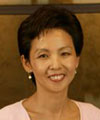Years ago, the college study-abroad experience was considered a once-in-a-lifetime chance for students to “escape” campus for a semester and explore a far-off destination. Today the world is a smaller place. Between the Internet and intercontinental transportation, the world is more accessible and easier for almost anyone to explore.
“It’s not uncommon for a student to have traveled outside the country multiple times by the time they get to college,” said Don Ostdiek, associate dean of undergraduates, who oversees Rice’s Study Abroad Office. “Some of our kids have already done that, and they want something more.”
The “more” that Rice’s Study Abroad Program offers isn’t something more extreme but rather more enriching: an international experience embedded in students’ curricular needs that imparts not only a global education but also cultural competence.
“The students respond to that,” Ostdiek said. “That’s what they want.”
Moreover, faculty enthusiasm for undergraduate engagement and opportunities for Rice to engage internationally has driven innovative ideas for internationalizing classes and courses. Departments and faculty have reached out to the Study Abroad Office, and now in addition to traditional study-abroad offerings, Rice has a growing selection of faculty-led and faculty-endorsed programs. The options range from a program that sends English majors to study the masters at prestigious universities in the U.K. to a photography workshop in Beijing to an intensive language program in Jordan.
Creating a faculty-led study-abroad program is hard work — but it’s immensely rewarding for both students and faculty alike, said Luis Duno-Gottberg, an associate professor who specializes in film studies and the Spanish and French Caribbean.
He just returned from a 10-day study-abroad trip to Cuba, where he led students in an exploration of contemporary trends in Cuban culture. It’s part of a class he co-teaches with Fabiola Lopez-Duran, assistant professor of art history, and Tish Stringer, lecturer and film program manager in the Department of Visual and Dramatic Arts, that examines the ways politics and the practices of artistic representation intersect in postrevolutionary Cuba. It’s a trip he’s been making with students for more than a decade.
“The students love it because they get to experience on their own a place that is kind of taboo — it’s off limits for Americans,” he said. “They see the problems (Cubans) have, the positive things they have. They form their own opinions about what kind of society it is. They interact with very different people — architects, art historians, writers, winners of important literary prizes, film directors, film critics, conservators — all who are politically very diverse, too. So students get to hear many different perspectives.
“For me personally … I truly enjoy having Rice students learn about my culture and change preconceptions they may have about Latin America,” he said.
Beyond that, study-abroad programs developed with faculty provide a connection to research interests, Duno-Gottberg said.
“It’s a great opportunity to share your passions about places you are interested in, to continue cultivating your professional relationships, to invite students to work in your field,” he said.
And the students love that too, Ostdiek said. “The students just love having that Rice connection; they love being abroad, but then being able to talk to Rice faculty and see them in that context changes the students’ relationship with Rice and it changes their relationship with study abroad. So it’s not just an escape; it’s contributing something to their academic experience.”
This summer Meng Yeh, senior lecturer of Chinese, is leading Rice-in-China, a six-week, intensive Chinese-language program taught in collaboration with faculty from Nanjing University, one of the top five universities in China.
“One of the visions of our center is to design, develop and implement an innovative, research-based study-abroad curriculum that complements and expands the curricular options offered on campus at Rice,” she said. “With the support of the center, I am excited to have the opportunity to provide students an innovative program abroad that complements and supports the curricular redesign of the courses we teach at Rice to help our students develop their language and multicultural proficiency, as well as their critical-thinking abilities.”
While in Nanjing, Rice students will conduct interviews to gather empirical language data. In class, they will analyze the data to identify significant patterns of language use and, in the process, they will construct their own understanding of the core values of Chinese culture. The program maximizes the students’ opportunities to interact with local people through home visit arrangements and community service.
“Our in-country programs have two unique features,” Yeh said. “First, our own faculty members directly oversee the academic quality of the program abroad — they are faculty-led. Second, faculty from both Rice and the partner institutions collaborate to design the curriculum of our in-country programs.”
Rice-in-China is the first in an innovative type of summer study-abroad program developed by the Center for Languages and Intercultural Communication (CLIC). This year the CLIC is also launching the Rice-in-Spain and the Rice-in-Jordan programs.
“We need to prepare our students to ‘learn from and work in more than one culture’ in the current global context, as President Leebron highlights in A Vision for the Second Century,” Yeh said. “The Rice-in-China program provides students the educational experience abroad not only to achieve language proficiency, but also to guide them to explore the culture and society in depth through language analysis.”
Ostdiek said some Rice academic departments aren’t necessarily aware of the Study Abroad Office as a resource to help making such international connections happen. The office can craft a variety of programmatic solutions customized to individual departments’ needs.
“We have a toolbox of different methods — it’s not a cookie-cutter experience,” he said. “It’s a partnership among the departments, the faculty and Study Abroad that makes this successful.”
“The Study Abroad Office has helped our initiative from the very beginning,” Yeh said. “It has provided the CLIC with the logistical support and the expertise that our center does not have. It is a great example of how different units with different types of knowledge and expertise can collaborate to develop exciting and productive projects that benefit Rice University and its students.”
Duno-Gottberg said that although he had many connections in Cuba, the program couldn’t have happened without considerable work by others at the university, including David Vassar, senior assistant to the president, and the university legal team.
“There is significant regulation to go to a place like Cuba; it’s not like going to any other place,” he said. “Erika Payan Zanetti in the Study Abroad Office did a ton of research. She worked so hard to find all the elements that needed to be in place for us to travel legally to Cuba.”
Not all students can take the time off to travel abroad, however. Strict and demanding sequential course requirements have precluded some science and engineering majors from pursuing study abroad in the past. So Ostdiek wants to think unconventionally and bring opportunities that fit their scheduling constraints to them.
He did so last year when he discovered an opportunity for students to work with a team at Chalmers University in Sweden to design a solution to a challenge issued by NASA. “They actually had to work through the problem, come up with a design to solve the problem and then prototype it, all done within their team but then communicated and presented to all the other teams that were across the ocean,” he said. It was a lesson in not only how to work on an international team but also how to communicate across distance and culture.
“Opportunities like these are not meant to replace traditional study abroad but rather to augment it and supplement it for the people who can’t otherwise go,” Ostdiek said. “We want to have lots of different opportunities available to students in all sorts of disciplines.
“The key is being innovative but not abandoning traditional study abroad,” he said. “That’s why I have to work in partnership with faculty; I need their help.”
“I think no student should graduate without studying abroad,” Duno-Gottberg said. “It should be an essential part of everybody’s education to leave the place where they were born, eat foods that are different from the ones that they had at home, experience a world outside their own; that’s growth.”
Learn more about Rice’s Study Abroad Program and the many opportunities available at http://abroad.rice.edu/.






I had to design my own Study Abroad experience as an undergraduate in the early ’80s. With the encouragement and cooperation of a few key faculty members I had an experience that in many ways has shaped the path for my life since. It is pleasing to see that Study Abroad is now being considered an integral aspect of a “whole” education.